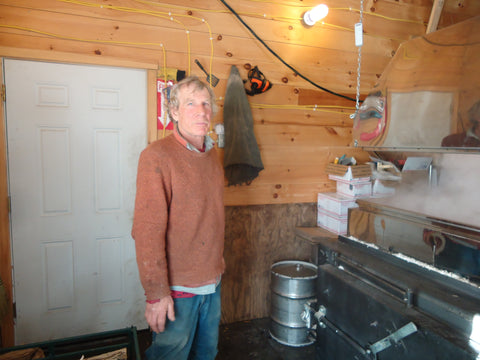On-Farm Practices
Stannard Farm is a 600-acre mountaintop farm in the town of Stannard in the Northeast Kingdom of Vermont, population 120 give or take a person. We are a fourth-generation family-owned and family-run farm that raises grass-fed beef and produces organic hay, organic maple syrup, and organic maple candy.
Our Commitment to Sustainability
- a windmill powers our sugarhouse
- we re-use boxing material to pack our maple syrup orders
- we have a sustainable forestry plan, and our sugarwoods is a diverse eco-system providing habitat for animals, birds, and insects
- the evaporator for making our maple syrup is a wood-fired evaporator -- most sugarmakers use oil-fired evaporators instead! (read more about our passion for wood-fired maple syrup here)
- our small herd of organic grass-fed beef lives outdoors year round, with shelters set up for the coldest months of the year and organic grass or hay from our pastures
- we maintain our tractors and machinery for as long as possible, rather than buying new farm equipment every year
- we rely almost exclusively on family labor -- we have never scaled up our farm beyond what we can manage within ourselves
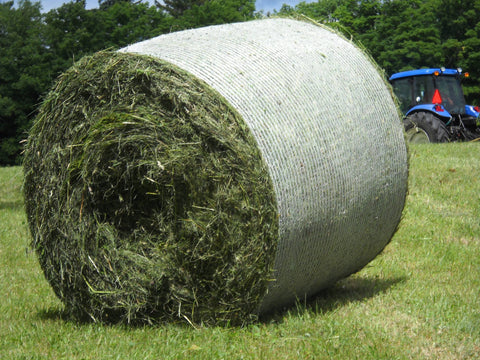
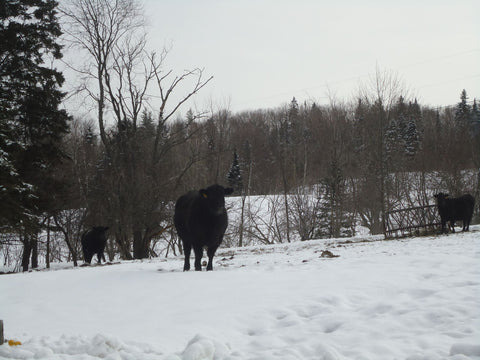
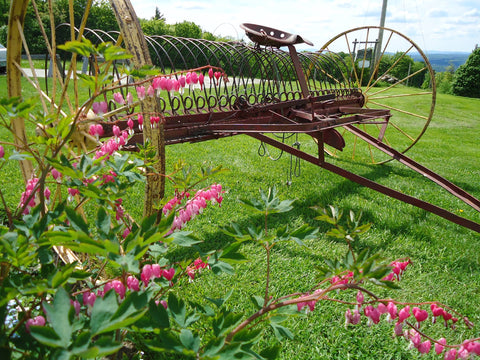
Our Organic Certification
- we have been certified organic since 2007
- we are certified by the Northeast Organic Farmers' Association's Vermont Organic Farmers Program (VOF Program)
- organic maple syrup means that we use an organic de-foaming agent rather than a chemical or industrial de-foamer (we use Spectrum safflower oil); we use bio-based cleaning products on the evaporator; and we abide by the sustainable forestry plan for our forest and sugarwoods
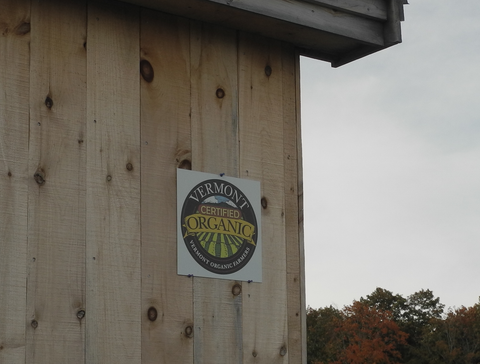
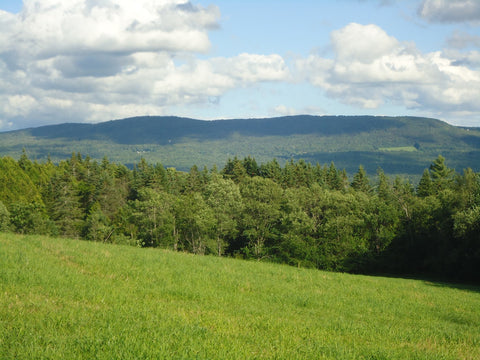
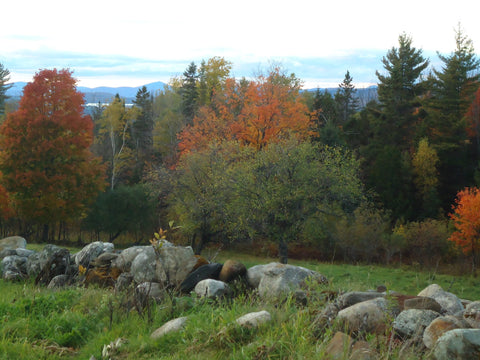
Our Bird-Friendly Recognition
- we were recognized as having bird-friendly sugarwoods, and producing bird-friendly maple syrup, in 2016
- we are recognized by the Vermont Audubon Society's Bird-Friendly Maple Project
- bird-friendly recognition means that our sugarwoods offers habitat to a wide variety of Vermont forest birds
- bird-friendly recognition focuses exclusively on the woods and involved a detailed inventory of the whole sugarwoods that looked for certain specific habitat features while organic certification requires a general sustainable forestry plan and also looks at maple syrup production in the sugarhouse -- we feel that both organic certification and bird-friendly recognition combined represent a sustainable, diverse, and supportive forest system on our farm!

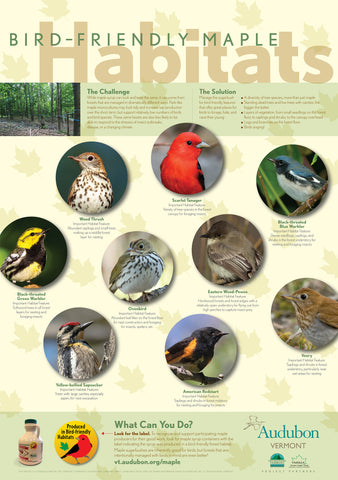
Our Sugaring Operation
- beginning in late January or early February, we tap 6000 trees on our farm
- we tap each tree by hand, connecting the tree to the map of pipelines that run through our woods
- we use a combination of gentle vacuum and gravity to draw sap into the bulk tanks
- we process our sap through a reverse-osmosis (RO) machine at a low level -- we strive to reduce our boiling time, thus saving energy, while maintaining a long enough burn time to develop complex and rich flavors in our maple syrup
- we use a wood-fired evaporator for our maple syrup (read here about our passion for wood-fired maple syrup!)
- our windmill creates enough energy to power our sugarhouse
- read more details about maple syrup production here, and follow life on the farm at our blog From Tree to Table
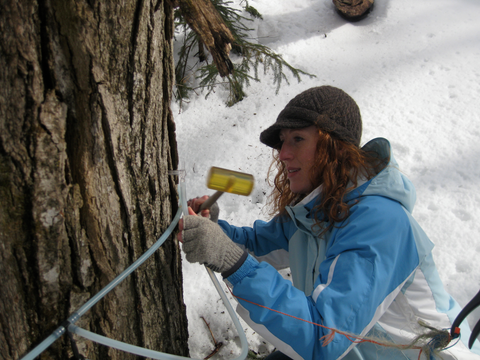
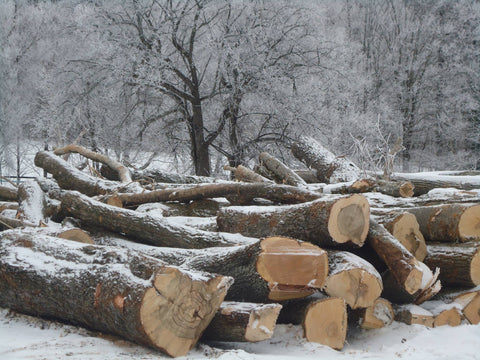
Interested in making and enjoying maple syrup? Read more here!

